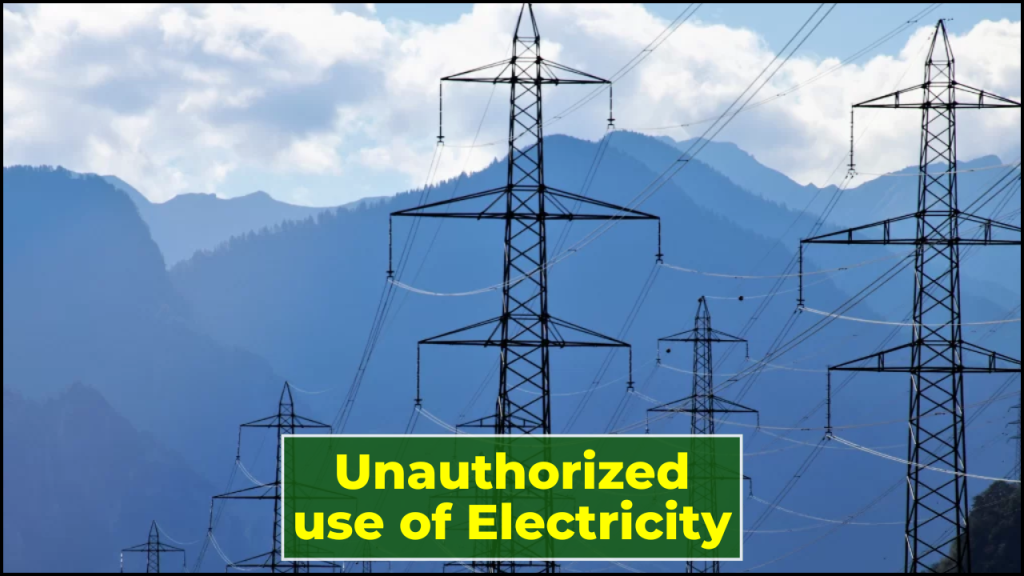
Delegated legislation must always stay within the boundaries set by the Parent Act. If it goes beyond these limits, it is considered invalid (ultra vires) and has no legal effect. Any rules or regulations created should support the main law, not override it.
It is essential to differentiate between rules and regulations. Confusing them can lead to legal complications. The Supreme Court reaffirmed this principle when it struck down Regulation 153(15) of the Kerala Electricity Supply Code, 2014, as it conflicted with Section 126 of the Electricity Act, 2003.
Kerala State Electricity Board vs. Thomas Joseph Alias Thomas
On December 16, 2022, the Supreme Court ruled in the case of Kerala State Electricity Board vs. Thomas Joseph Alias Thomas. The Court clarified that using more electricity than the approved limit is considered unauthorized use under Explanation (b) to Section 126(6) of the Electricity Act, 2003. Additionally, the Court declared Regulation 153(15) of the Kerala Electricity Supply Code, 2014, invalid because it contradicted Section 126.
U.P. Power Corporation Ltd. vs. Anis Ahmad: Consumer Court Jurisdiction
In the case of U.P. Power Corporation Ltd. & Others vs. Anis Ahmad & Others (2013), the Supreme Court addressed whether consumer courts under the Consumer Protection Act, 1986, could handle electricity-related disputes. The key issues were:
- Can consumers file complaints against electricity boards under the Consumer Protection Act, of 1986?
- Do consumer courts have the authority to hear cases related to unauthorized electricity use (Section 126) or penalties (Sections 135-140) under the Electricity Act, 2003?
The Court ruled that the Consumer Protection Act applies to service-related disputes under Sections 2(1)(o) and 2(1)(c). However, consumer courts cannot hear complaints about assessments under Section 126 or penalties under Sections 135-140.
Both the Electricity Act, of 2003, and the Consumer Protection Act, of 1986, operate independently. While consumer courts can resolve service-related complaints, assessments and penalties under the Electricity Act fall outside their jurisdiction.
Supreme Court’s Ruling on Unauthorized Use of Electricity
The Supreme Court reaffirmed that using more electricity than the sanctioned limit qualifies as unauthorized use under Explanation (b) to Section 126(6) of the Electricity Act, 2003.
This decision came after the Kerala State Electricity Board (KSEB) challenged a Kerala High Court ruling that stated extra load within the same premises under the same tariff should not be considered unauthorized use. The KSEB referred to the earlier Supreme Court case of Executive Engineer, Southern Electricity Supply Company of Orissa Ltd. vs. Sri Seetaram Rice Mill (2012), which held that excess load consumption falls under Explanation (b)(iv) to Section 126.
Key Legal Principles from the Seetaram Rice Mill Case
The Supreme Court highlighted the following principles from the Seetaram Rice Mill case:
- Comprehensive framework: Sections 126 and 127 provide a structured system for assessing unauthorized electricity use.
- Legislative intent: Section 126 aims to prevent unauthorized electricity consumption.
- Revenue protection: Unauthorized use causes financial losses and disrupts power distribution.
- Public interest: Excess consumption affects grid stability and efficiency.
- Broad interpretation: Unauthorized use should be understood in a wide context to uphold the Act’s purpose.
Supreme Court’s View on Kerala High Court’s Interpretation
The Supreme Court ruled that the Kerala High Court was wrong to exempt consumers exceeding their sanctioned load from additional charges under Section 126. Referring to the Seetaram Rice Mill case, the Court confirmed that excessive consumption falls under Explanation (b)(iv) to Section 126, making the charges valid.
Understanding the Electricity Act, 2003
Explanation (b) to Section 126(6) defines unauthorized use of electricity as:
- Using electricity through unlawful means.
- Accessing electricity without authorization.
- Using a tampered meter.
- Using electricity for unauthorized purposes.
- Consuming electricity in unauthorized locations.
Regulation 153(15) of the Kerala Electricity Supply Code, 2014, stated that additional load within the same premises and tariff should not be considered unauthorized use unless the consumer is billed based on the connected load. However, the Supreme Court struck down this regulation, emphasizing that delegated legislation must align with the Parent Act. If a regulation contradicts the main law, it is invalid.
Key Takeaways from Supreme Court Rulings
The following legal principles were reinforced:
- Consuming electricity beyond the sanctioned load is unauthorized use.
- Delegated legislation cannot exceed the limits of the Parent Act. If it does, it is invalid.
- Regulation 153(15) of the Kerala Electricity Supply Code, 2014, was struck down for contradicting Section 126 of the Electricity Act, 2003.
These rulings clarify jurisdictional matters in electricity disputes and ensure the efficient use of power resources while protecting against unauthorized consumption.













